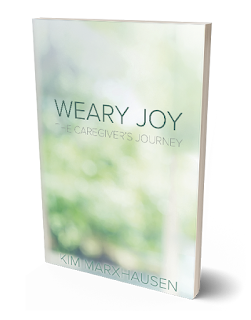Because
emotions are such an integral part of our lives, it is easy to assume that they
are the correct response to any given situation. We think our anger is always
justified, and our anxiety is for a good reason. It rarely occurs to us that we
need to evaluate what we are feeling.
The truth is
that emotions are chosen by the brain to suit a purpose. Sometimes the brain is
wrong in its choice. That the brain could be wrong should not come as a
surprise, and this happens often.
Emotions are chosen in a split second as a reaction to sensory
information. Feelings do not come out of a situation but are applied to a
situation for purposes of motivation. In other words, fear draws us away from
danger, surprise draws us closer to potential learning, and disgust keeps us
from eating something dangerous.
Oh, how I
wish I could feel a bit of disgust about sugar and less disgust about cooked
spinach. However, these are the mistakes my brain makes. Over the long term,
good choices happen just often enough to keep us alive and learning.
While we cannot
edit the work of our brain and replace an unhelpful emotion
with a helpful one, we can influence what emotions our brains choose.
We can set
our minds. We do this by practicing the things that give us better emotions.
For instance, when we answer our anxiety by reading the Psalms, the Spirit
feeds our faith. This practice of reading God’s Word strengthens the neural
pathways that support emotions of calm and peace because we continually realize
the power, glory, and love of our Heavenly Father. When these pathways are more
robust, the brain is more likely to choose the emotions connected to them. It
is a poignant illustration of how God uses His creation, and His Spirit, to
assist those He created.
As people of
the world, we want everything we do to be about us, about our decision, about
our strength, and our desires. Fortunately, life, as a child of God, does not
work that way. Take trust, for example. The world wants us to believe that
trust is our power, and we can wield it when we need it. We are told to “have
faith and trust,” while the object of that faith is conveniently left out. Am I
better off trusting myself? Certainly not, as that kind of faith just sets me
up for failure.
My faith and
trust should be in God. Yet, there is still something wrong with that
statement. Is it truly MY faith or MY trust? If it is, I am again setting
myself up for failure. I cannot be trusted.
The ability
to trust comes from God. Trust has been won for us. Jesus already defeated all
enemies to our life and safety. There is nothing we can do to make that victory
any sweeter. We trust God because of God. We trust God because of what He has
done for us and what He continues to do for us. We trust God because we feel
His love, and that is the perfect emotional response.
In these
strange times of challenges we to be encouraged to trust God, because, well . .
. God.
God is strong. God is steadfast. God is in control.
To set the mind on the
Spirit is life and peace. Romans 8:6



No comments:
Post a Comment